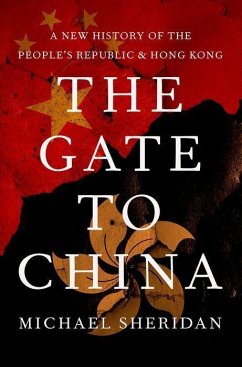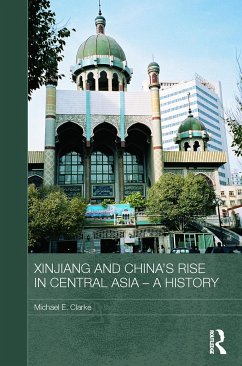
Protest Inside Tibet and Xinjiang
A Moral Economy Analysis of the 2008 Tibetan and 2009 Uyghur Unrest
Versandkostenfrei!
Versandfertig in 6-10 Tagen
32,99 €
inkl. MwSt.

PAYBACK Punkte
16 °P sammeln!
For the past sixty years, development rhetoric has marked Beijing s political agenda for Tibet and Xinjiang, in order to create social stability. In that time, both regions have shown incredible economic transformation, but in 2008 and 2009 both provinces engaged in violent uprisings. These protests were begun by peaceful means, but quickly turned violent, exposing multiple layers of underlying tension divided on ethnic lines. How can this disjuncture be explained after sixty years of integration and does the moral economy framework provide a useful analysis for the motivations behind these re...
For the past sixty years, development rhetoric has marked Beijing s political agenda for Tibet and Xinjiang, in order to create social stability. In that time, both regions have shown incredible economic transformation, but in 2008 and 2009 both provinces engaged in violent uprisings. These protests were begun by peaceful means, but quickly turned violent, exposing multiple layers of underlying tension divided on ethnic lines. How can this disjuncture be explained after sixty years of integration and does the moral economy framework provide a useful analysis for the motivations behind these recent events?












